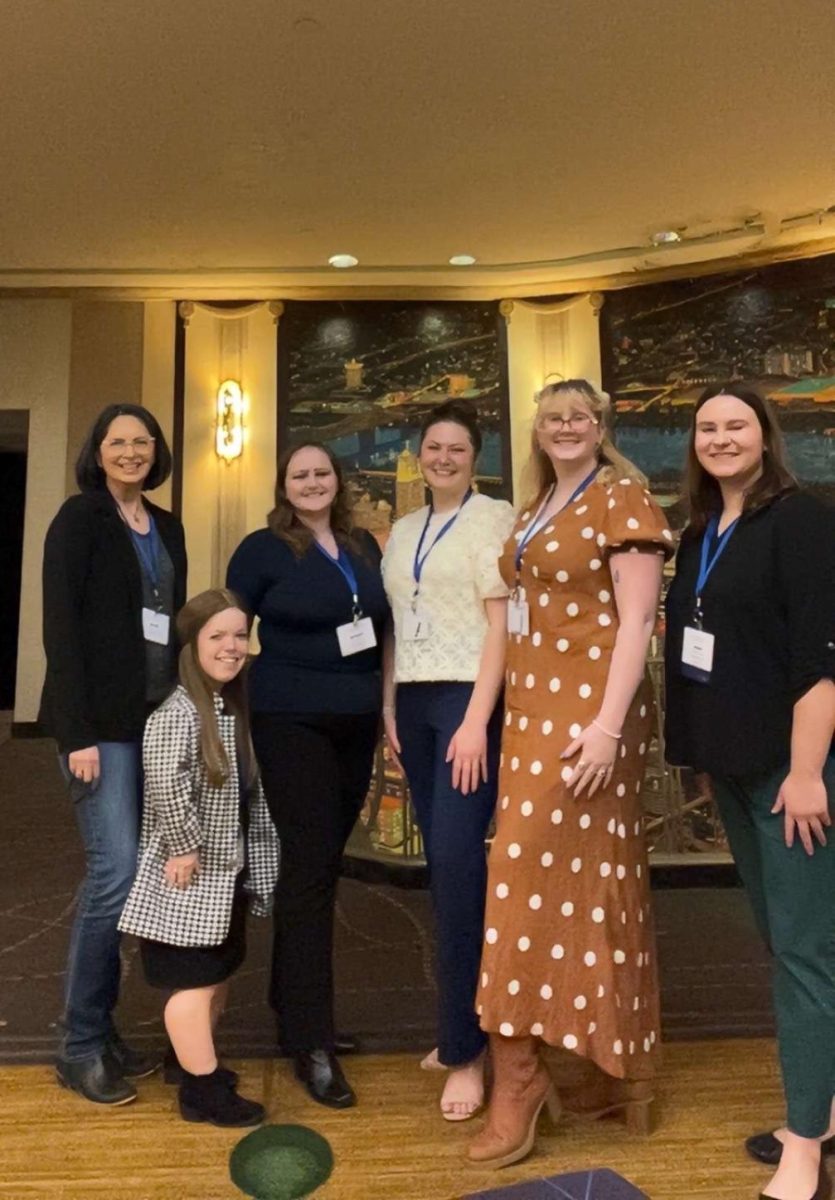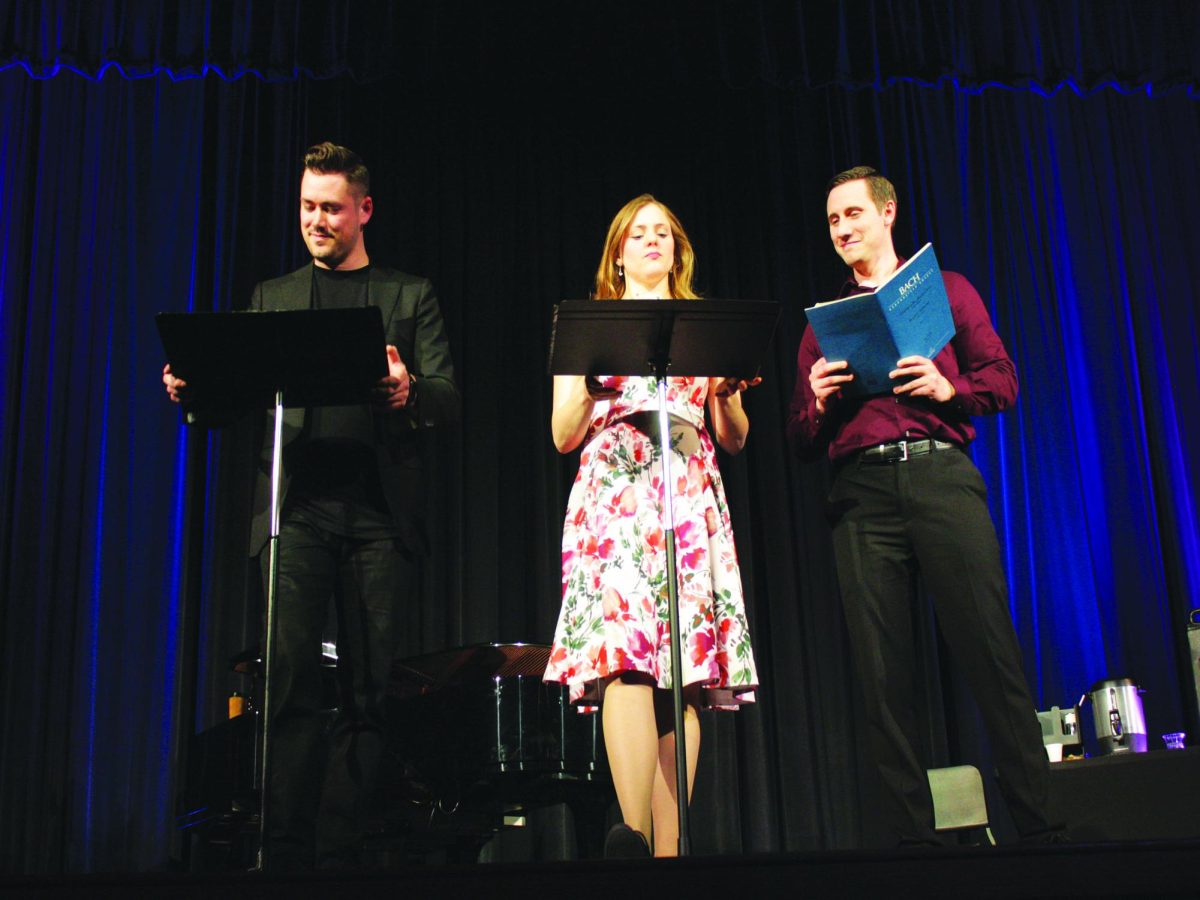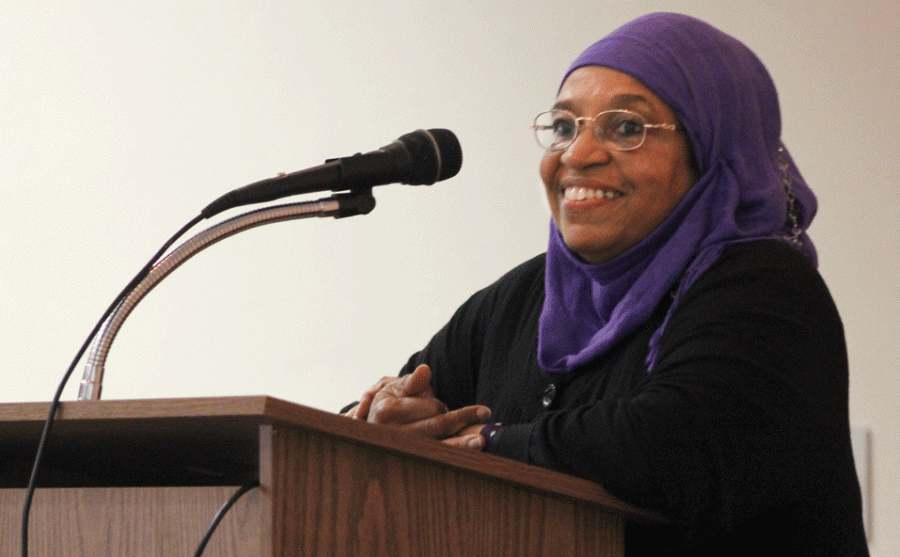Misconceptions clarified about Islamic women
Speaker Godare: ‘Boys and girls are supposed to be treated equally in faith’
Maisha Godare informs WSC about the Muslim faith and her role as a woman in it.
October 1, 2014
Out of the approximately 7 billion people in the world, nearly 22 percent identify as Muslim, according to the CIA World Factbook.
In the United States, the percentage is only 0.6.
In Nebraska, the number is even lower, at 0.3 percent.
Because Muslims are a minority in the United States, many Americans know little about the culture or the Islamic faith. In rural Nebraska, where diversity is limited, people have even less knowledge.
Among many hoping to change that is Maisha Godare, president of the Heartland Muslim Women’s Network.
Godare, who met with a Wayne State audience in Gardner Auditorium last Wednesday, intended to inform students about her faith, and more specifically, clear up any misconceptions about her role as a woman.
“First of all, it’s not an adversarial relationship between men and women,” Godare said.
“Boys and girls are supposed to be treated equally in faith.”
Throughout her presentation, Godare touched on the general aspects of her religion, including the six major beliefs and the five main expectations of Islam.
She also discussed several of the ways equality is enforced by the Islamic faith.
“Islam emphasizes the seeking of knowledge for both men and women. As a matter of fact, especially in the United States and countries like Jordan, women are actually more educated than some of the men,” she said.
Yet common stereotypes pin Islamic women as oppressed, submissive and illiterate with no rights, as stated in Godares’ presentation.
Those misconceptions, according to Godare, stem from the media, and what she refers to as “external dictates.”
“Women are now reinvestigating their rights in Islam, rejecting both the culture and influence of external dictates,” she said.
Among those dictates is the impression of the western culture that because Islamic women are veiled, they are automatically oppressed.
“Muslim dress is mainly for identification among other people,” she said. “It is a protection for Muslim women. But if you’re not exposed to something, you only believe what you hear about it.”







